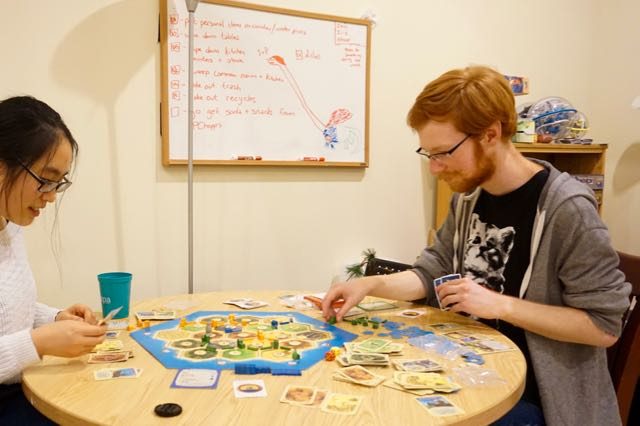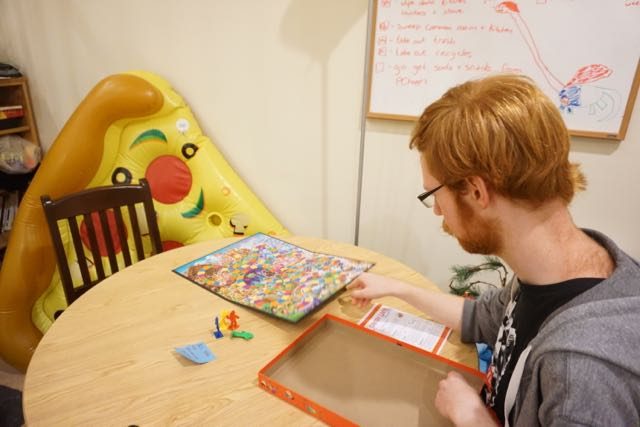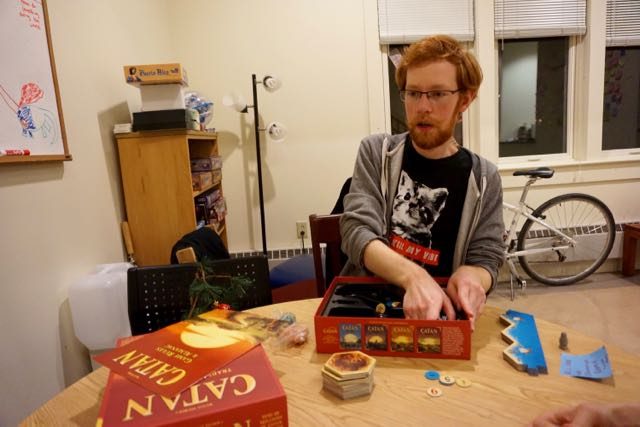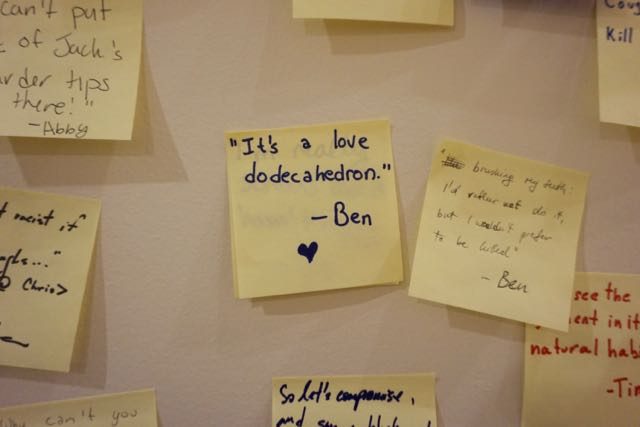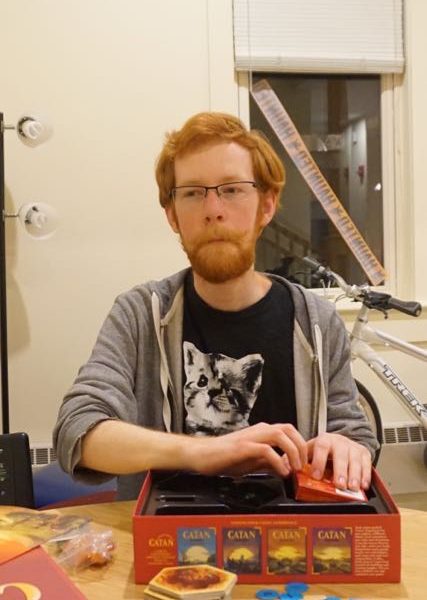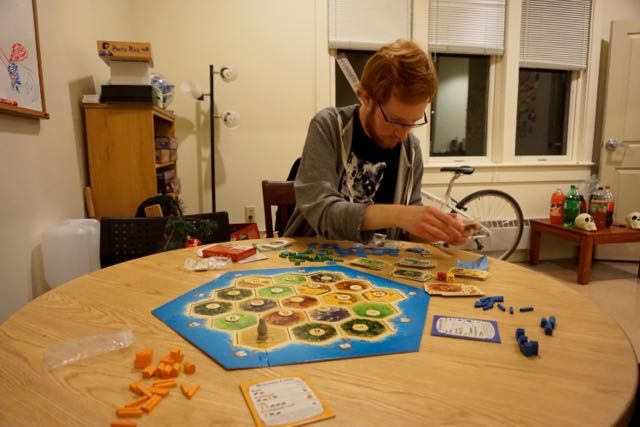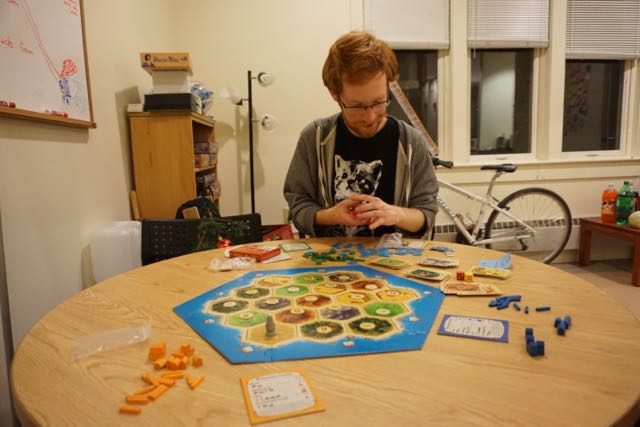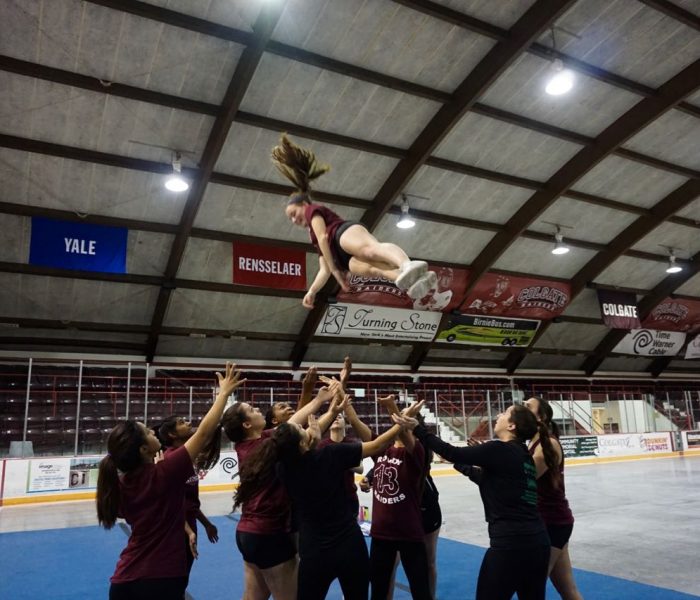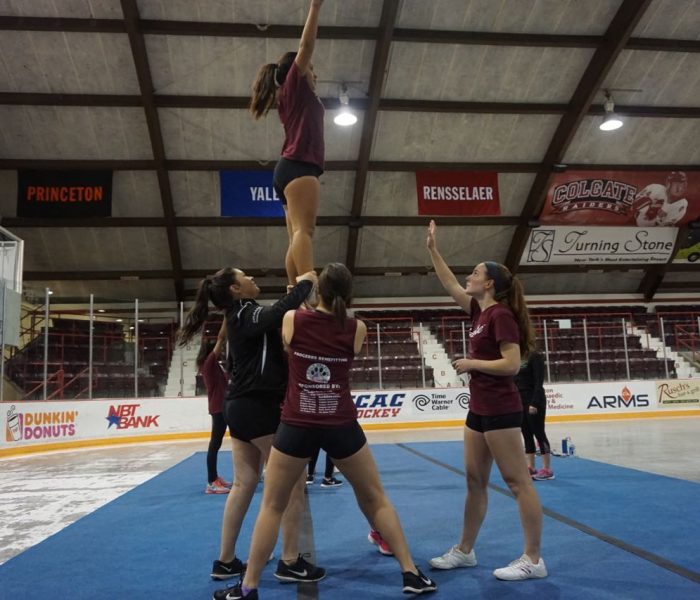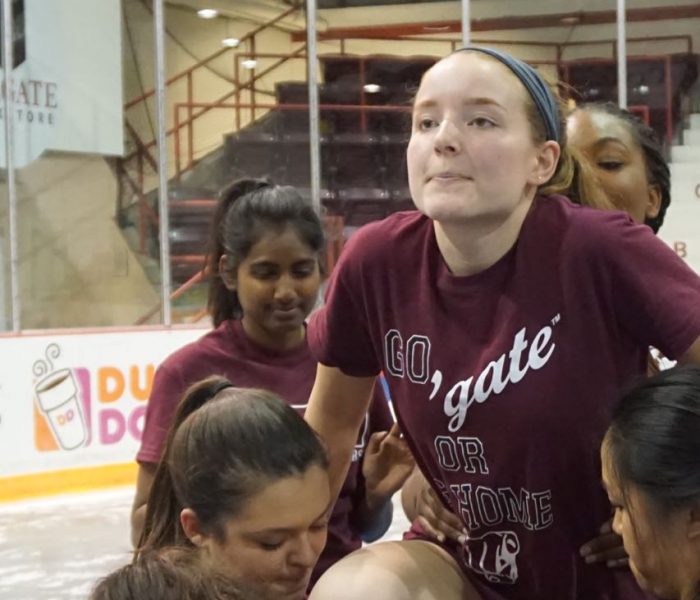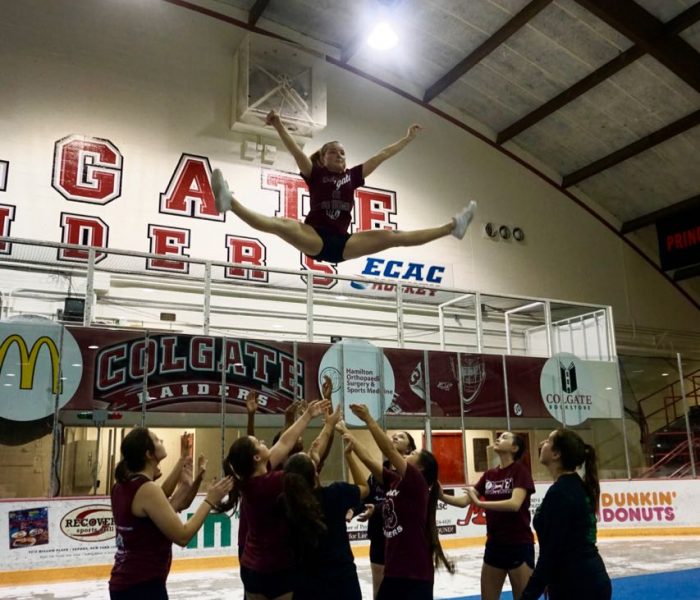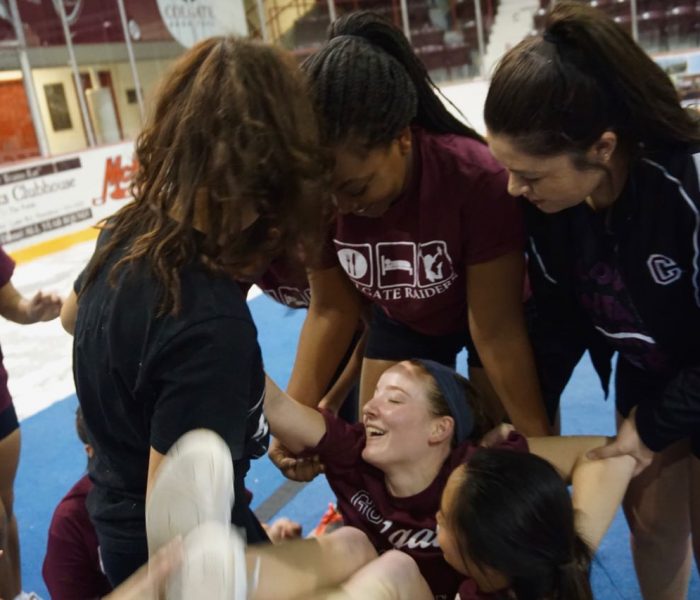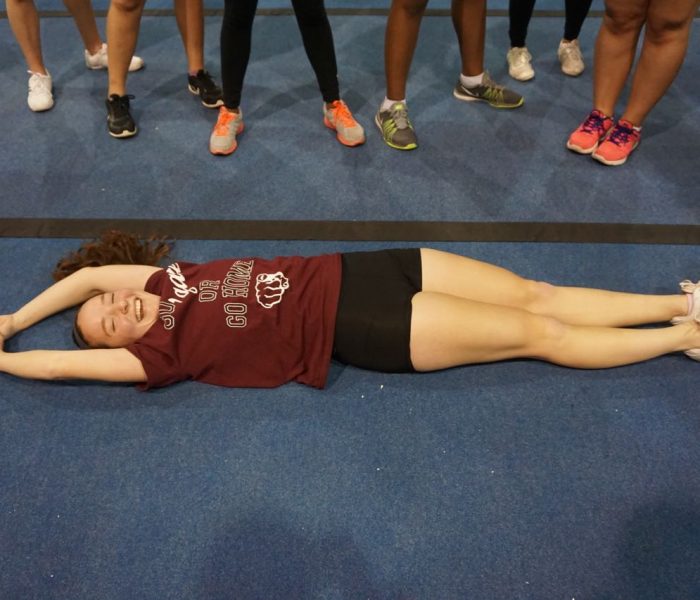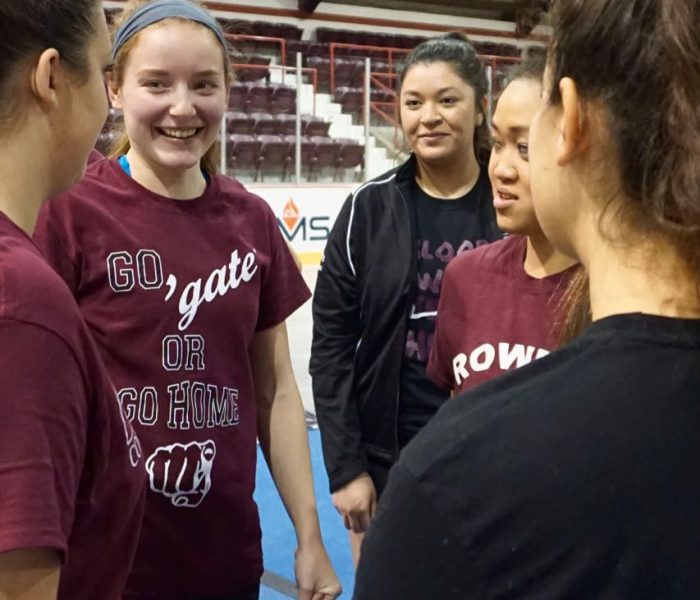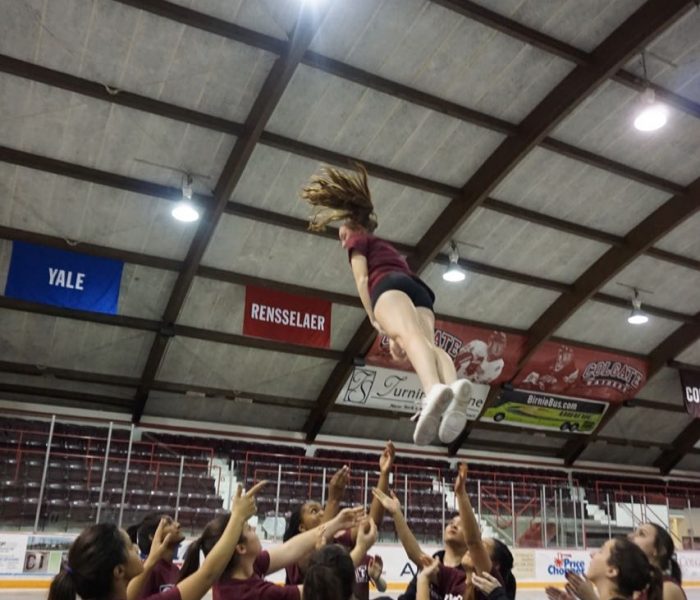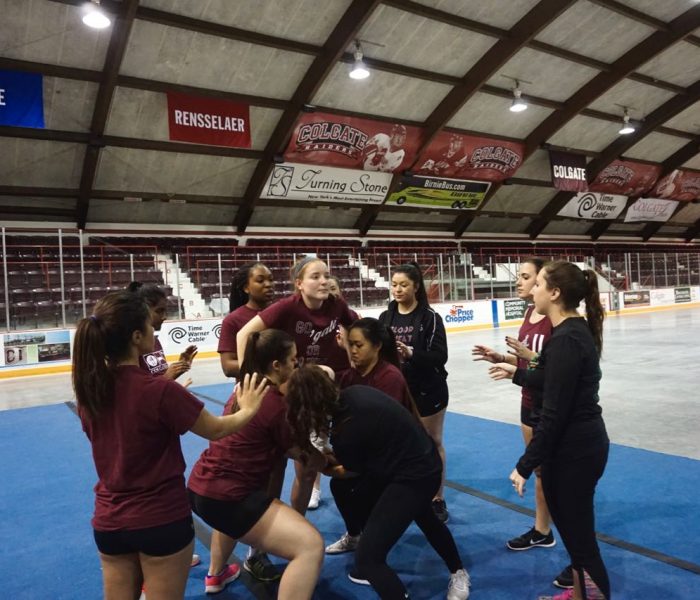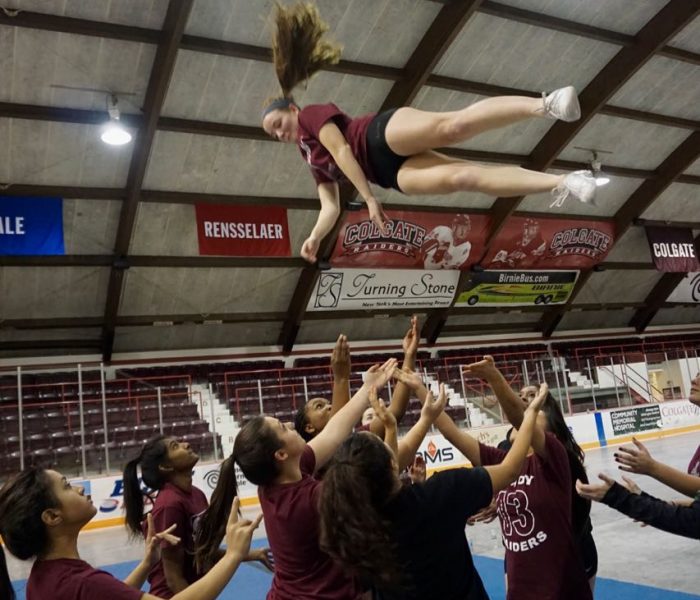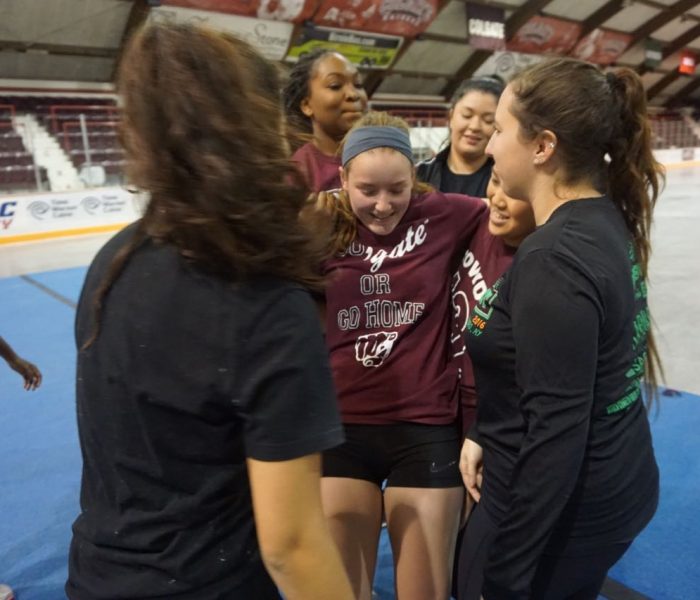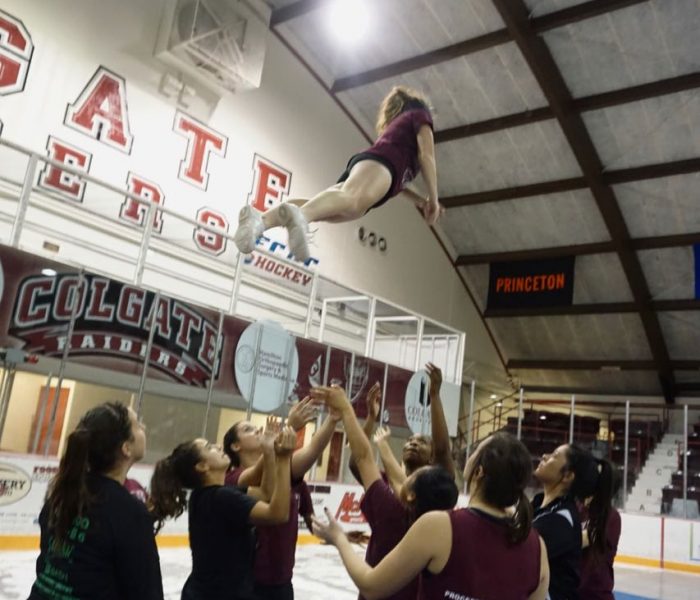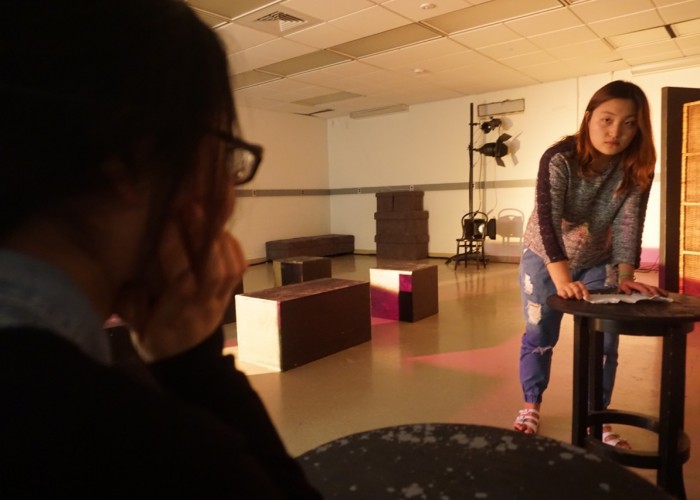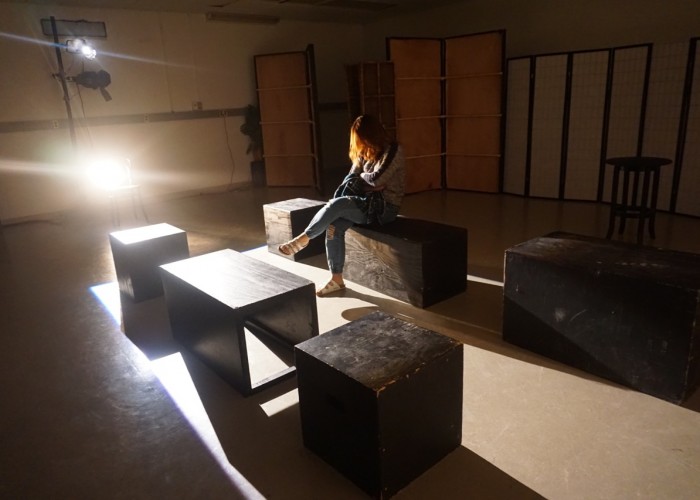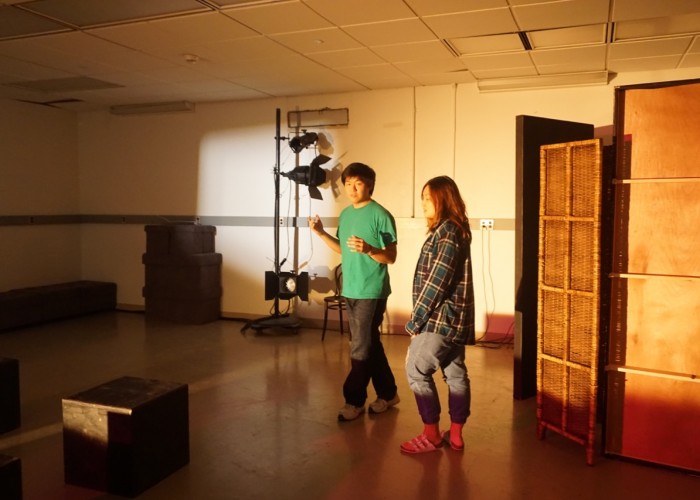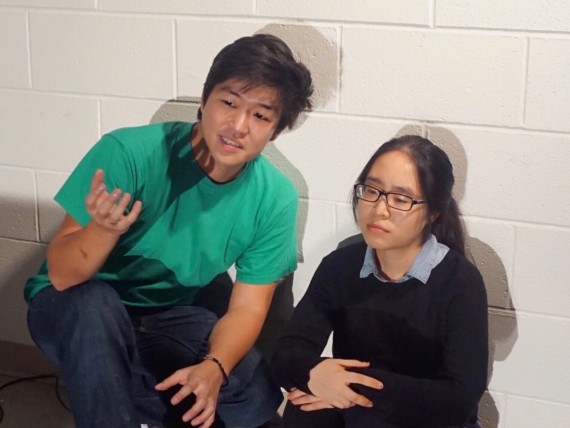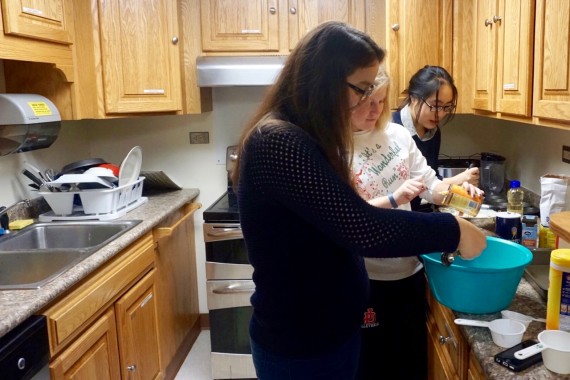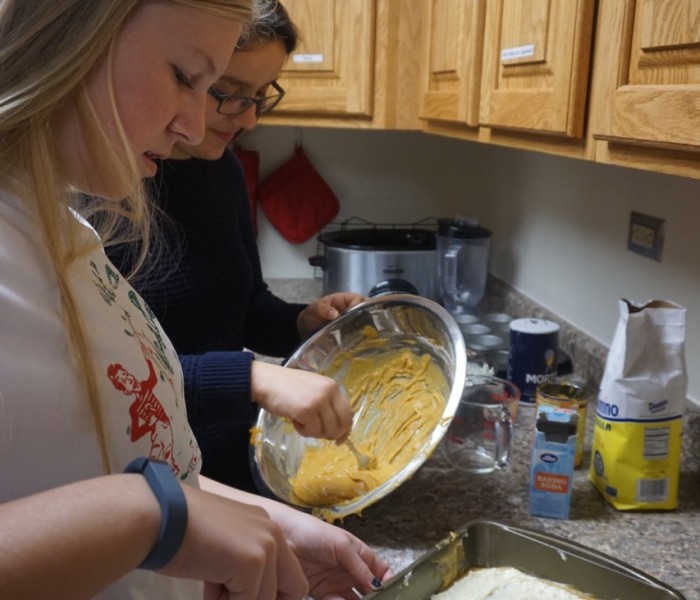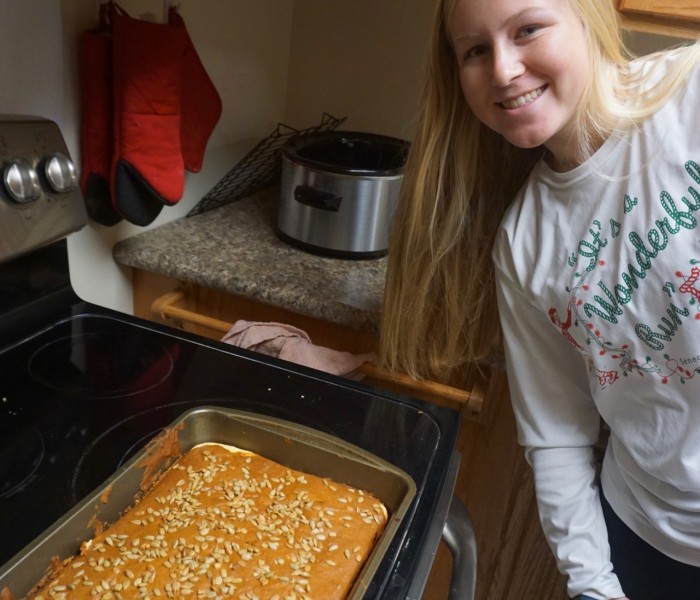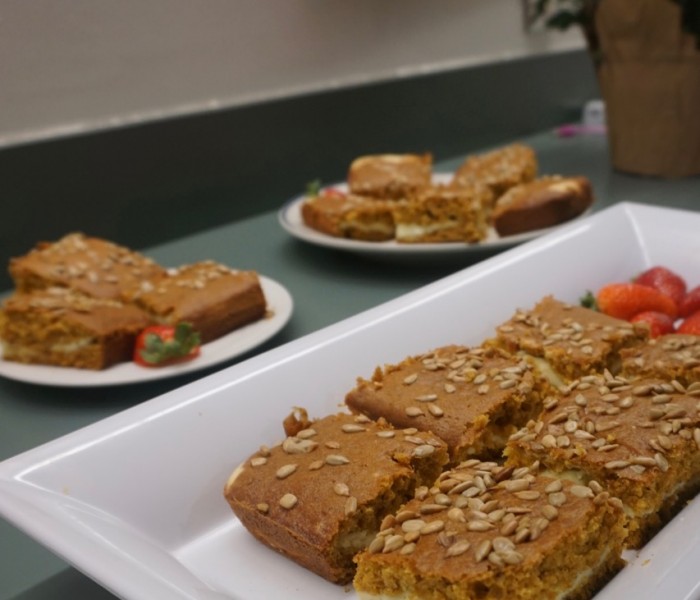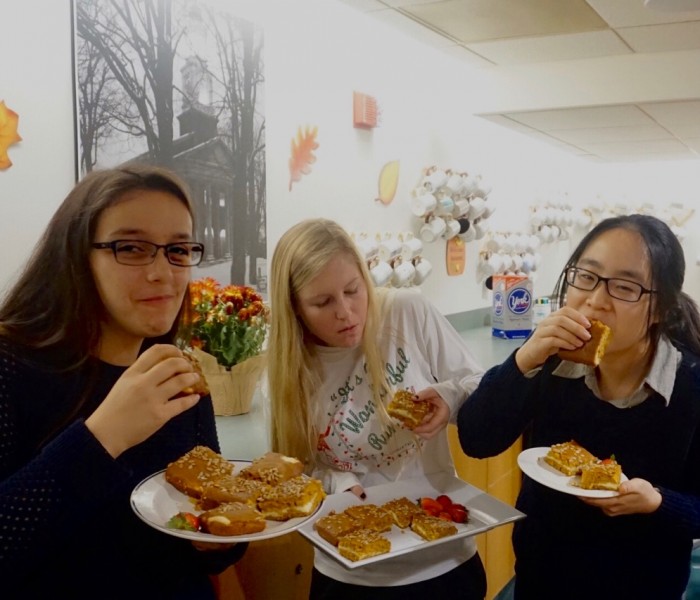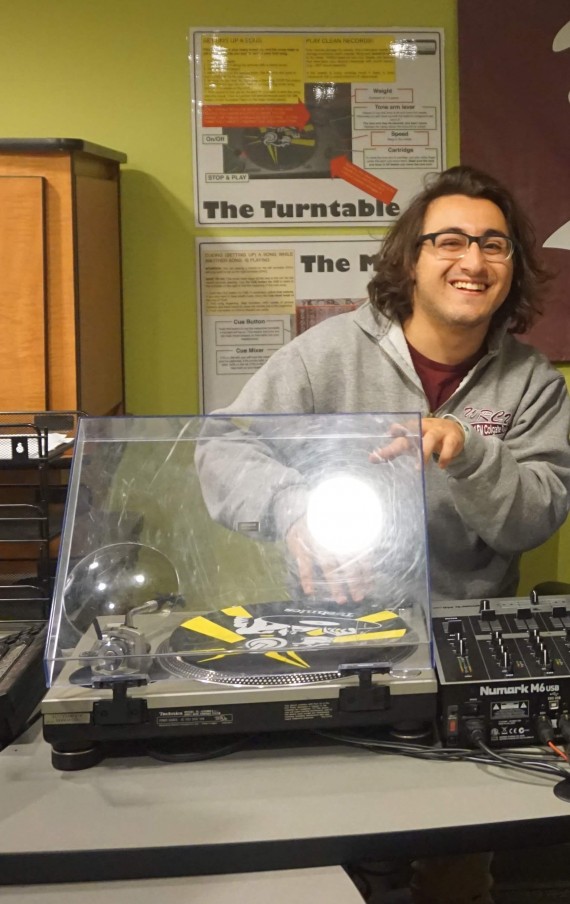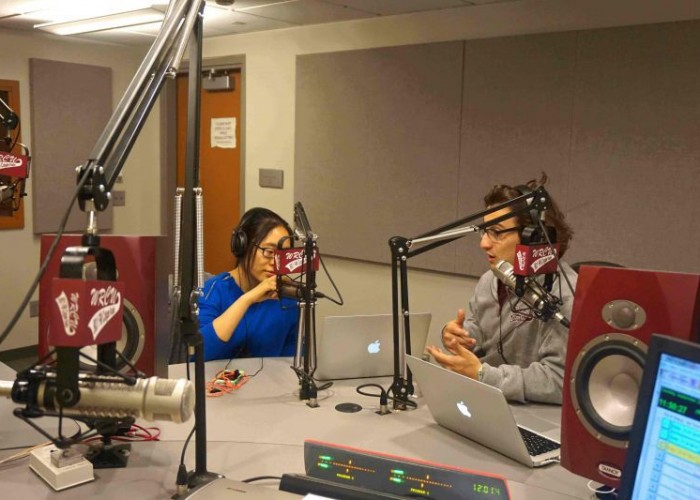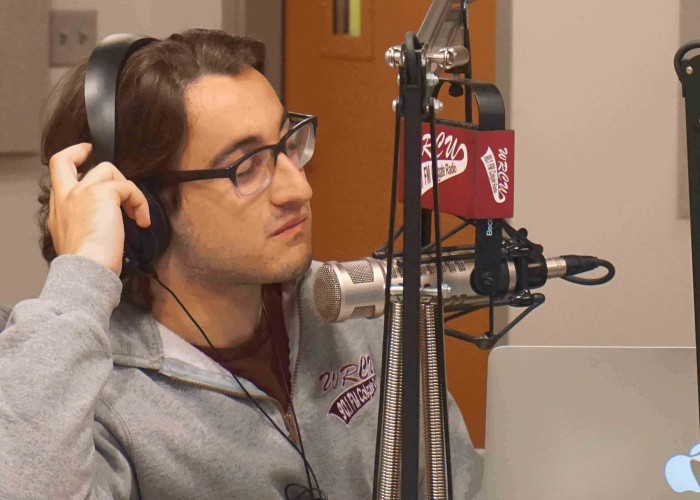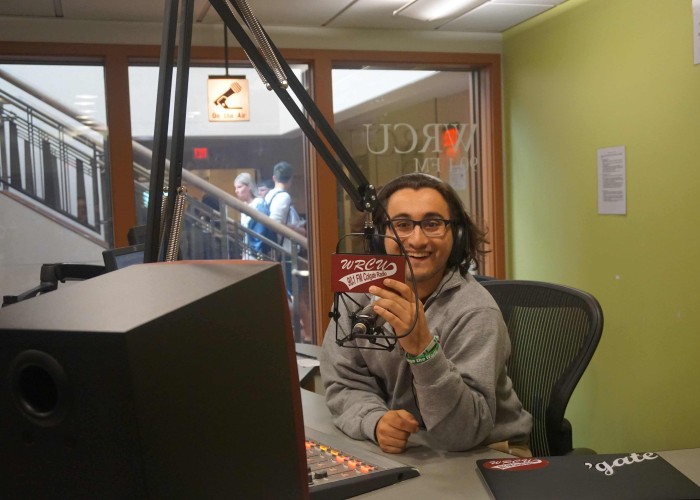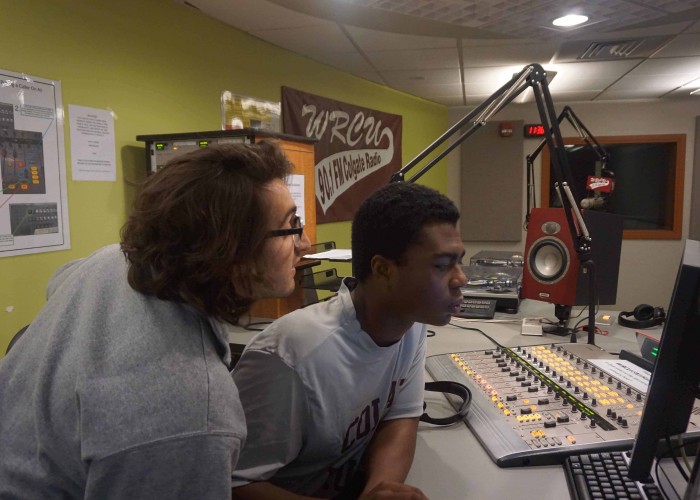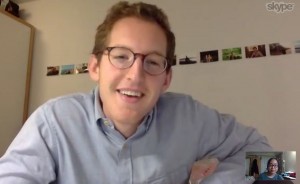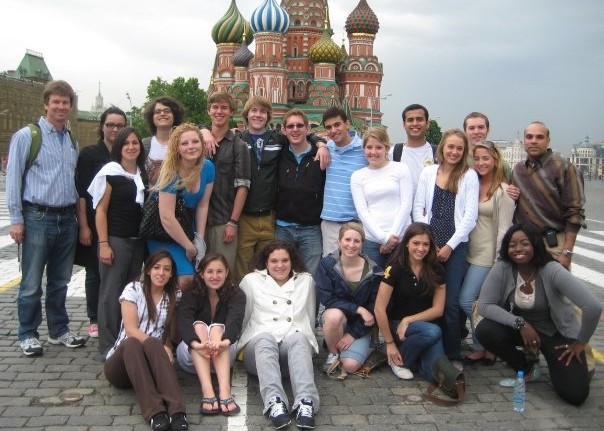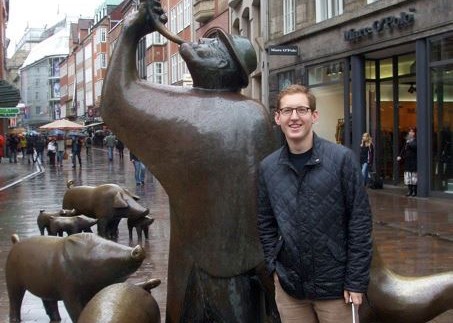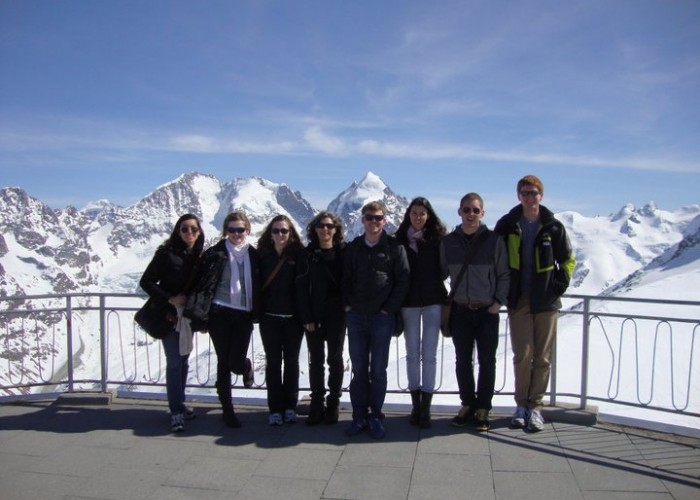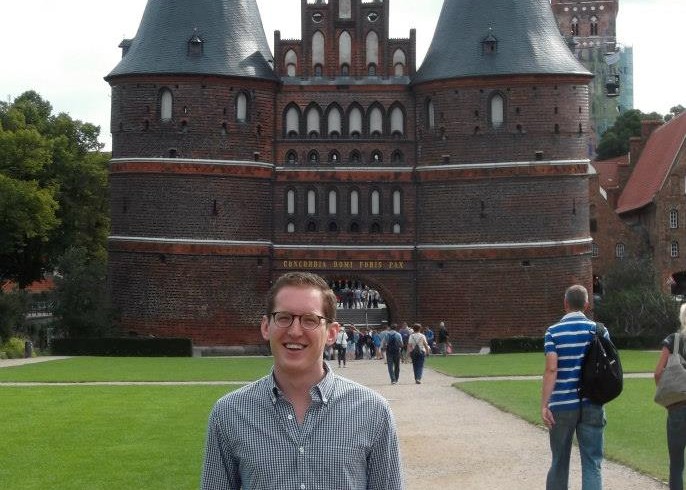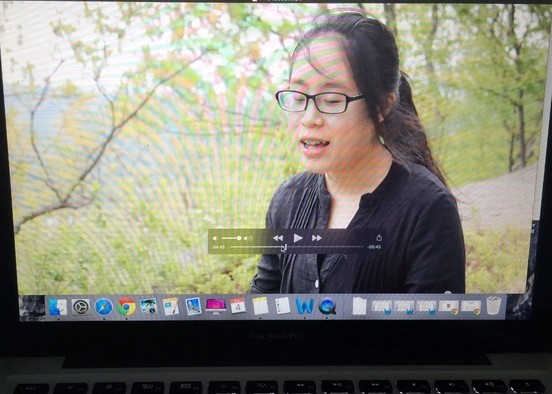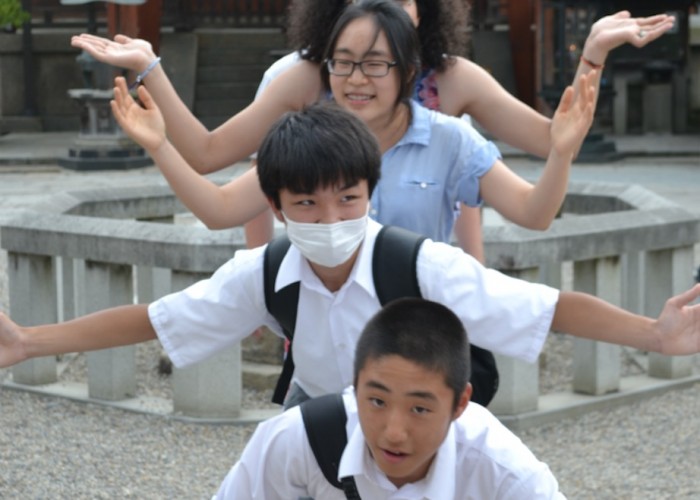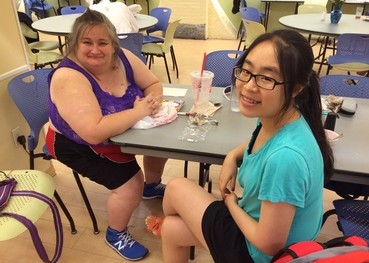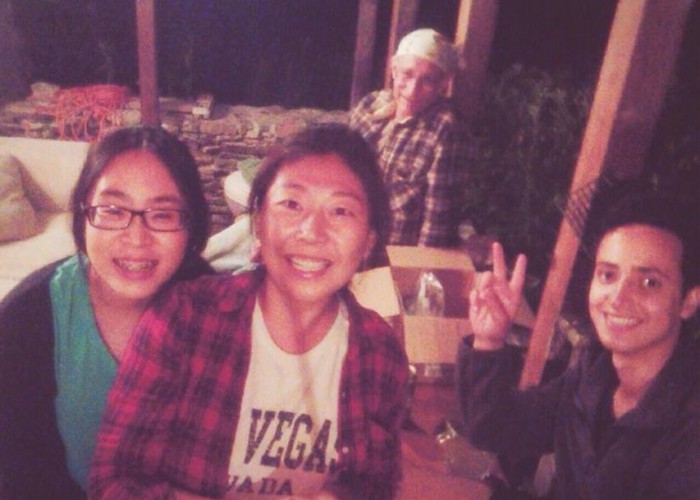This is the last post of the series XYZ with Q this year, where Quanzhi “Q” Guo ’18 visits current and former Benton Scholars to learn about their interests, passions, and accomplishments. Q is going to be in Europe next semester and if you are around and wanna meet up, please send her a message! In this post, Q went to play board game with Benton junior Ben Kelsey ‘18.
I don’t usually play games, but I grew up in China, the nation of Go—which some say is the most ancient and sophisticated board game in the world. I remember walking past public parks, spotting elderly people playing Go on stone tables while onlookers around the battlefields commented and cheered. So it felt nostalgic to join Benton Scholar Ben Kelsey ’18, from Manlius, NY, to play board games. Having lived in Belgium and Italy for 9 years, he speaks English, Dutch, Italian, and French fluently, and he is now a French and Japanese double major.
When I arrived at Multiplayer House on a snowy Friday night, many people were already playing video games in the living room. Each week, the house hosts a Game Night where people just hang-out and play everything: from tabletop roleplaying games to trading card games. As I have almost zero experience with Western board games, we started off with Candy Land. Finding it a bit simplistic, we moved on to Settlers of Catan, a strategy board game about settlement, discovery, and trade. It turned out to be a fine choice.
The sequence of play goes something like this: the board has hexagonal terrain tiles representing different resources, like brick, sheep, stone, wood, and wheat. We, the settlers of Catan Island, rolled dice and gathered resources, which we later traded or used to build roads, settlements, and cities.
Ben easily tops the list of nicest people I know. But I tend to be competitive in situations like this. So, as we sat around the table munching on pretzels, I discovered something cool about this game: it is competitive, but it requires cooperation, because players have to engage in trade. Also, while it is simple to learn, you need a strategy to win. And the killer—chance—is always there, too. Whom does the dice favor? What cards might you draw?
Ben has been interested in games for almost his entire life. “I’m not sure how games have changed me, but I think I have learned some patience from them, and I think they’ve helped me to learn to think critically, whether it’s to strategize on how to overcome a difficult part of a game, or to make plans outside of games,” he said. He started playing a Pokemon trading card game at the age of 4 or 5, and his favorite game is The Legend of Zelda: Twilight Princess.
“I think there’s a certain sense of escapism in games for a lot of people. While I don’t think I enjoy them so much to escape ‘real life’, I do think that I enjoy the ability to immerse myself in another world and the social aspect of game,” Ben said.
To Ben, games are just there to be fun, and if you are having fun, you are doing it right. Now the Co-Consul of The Game’s Afoot, Co-President for Trading Card Club, and Vice President of the Colgate Roleplaying Game Society, he sees the niche community he is involved in providing an alternative social scene at Colgate, and he has been trying to spread this fun. For example, he has helped with ‘Gate Night—the late-night programming organization on campus, or trained new Colgate employees by acting like a zombie while they did puzzles, or run a game night at the Earlville Free Library.
“People who are interested in [games] tend to not feel as though they fit in elsewhere. Because of that, I think a large part of our role is to cultivate our own community, [one] that isn’t necessarily cut off from the Colgate community, but offers another alternative,” Ben said.
While the games group is a niche community, it is open, really, to everyone. Ben thinks that making the social scene at Colgate more inclusive, which has always been an issue, requires avoiding strong divisions. “Programming that’s not explicitly anti-alcohol or pro-alcohol would, I think, help to provide a space for a middle-ground, which is what I think a lot of people want and is necessary. Intentionally excluding people who want to drink or party or whatever responsibly only makes them feel unwelcome and pushes them to the fringes,” he said.
To build a diverse community, it is important not to equate being different with being worse. Colgate has a strong student archetype, which makes it hard be who we really are. Ben is low-key and knows how to leave distance. While he described himself as awkward, others describe him as reflective and caring. “Growing up, I think I had an unusual perspective, and that makes me feel different, but it’s not that I’m better than anyone else. I try to let people be and stick to what and whom I like instead of getting upset about them,” Ben said.
For Ben, there are ideas and opinions with which he disagrees and others he might like to change. “However, I know that, in the same way as I have reasons for what I think, others have reasons for what they think. I try to do what I can, but ultimately I think people need to change on their own, and me trying to tell them what to do isn’t going to accomplish much,” Ben said.
It was really fun to sit at a table and talk while playing board games before final exams, and before I leave for study-abroad. On the Island of Catan, Ben scored 10 victory points first—and won the game. But I was really close. (I had 9!)


